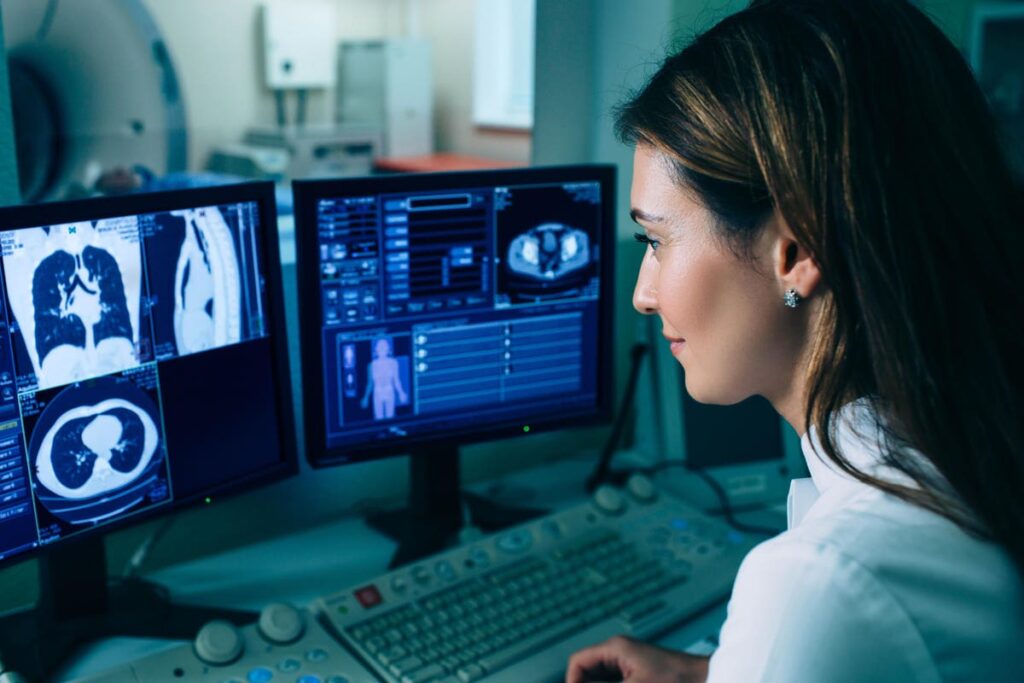Radiologist looking at a CT scan of a patient’s torso.
Artificial intelligence may soon help clinicians treat cancers like lung, colorectal and prostate in England’s public hospitals.
This is the first time the country’s heath spending watchdog has recommended using AI to support the work of health professionals.
It’s hoped the technology will reduce the amount of time radiographers spend manually marking up images.
Before a cancer patient undergoes a treatment called external beam radiotherapy, a radiographer reviews their CT or MRI scans to carefully outline things like healthy organs.
This “contouring” process marks the areas radiotherapy should target and avoid, helping to minimise damage to healthy tissue. It’s a vital part of many treatment plans — but it also takes time.
AI can produce contours of a similar quality to those drawn manually, according to evidence presented to a committee of England’s National Institute for Health and Care Excellence (NICE).
They’d still have to be reviewed and edited, when necessary, by a health professional before being used as part of treatment. But the process could shave up to 80 minutes off the reporting time for certain scans.
Expert clinicians told NICE that AI could shorten the amount of time it takes to plan a treatment by 10 to 30 minutes, while clinical evidence suggested it could reduce it by three to 80 minutes.
This could result in tens of thousands of hours saved across the country at a cost of between £4 ($5) and £50 ($63.50) per plan, NICE calculations show.
It’s hoped radiographers could use this time to focus on particularly complex cases, as well as meet increasing demand.
Demand for healthcare, including cancer treatment, is already high and expected to grow as the population ages. Radiography is particularly vulnerable to pressures, in part because the U.K. has a serious shortage of radiographers.
Like other areas of the healthcare workforce, imaging staff are working under intense pressure as they weather concurrent crises in both emergency and planned care.
Members of the Society of Radiography walked out last month over pay and working conditions.
A spokesperson for the organisation said patient safety must be of the upmost concern when considering the use of automated AI technology.
Charlotte Beardmore — the organisation’s director of professional policy — told The Guardian: “It is critical there is evidence to underpin the safe application of AI in this clinical setting.”
As implementing the technology safely still requires the use of radiographers and other clinical professionals, she added, “Investment in the growth of the radiography workforce remains critical.”
NICE programme director for health technologies Sarah Byron said in a statement that radiotherapy departments were “under severe pressure with thousands of people waiting for scans.”
She added: “The recommendations made by our independent committee can help to bring waiting lists down for those needing radiotherapy treatment.”
Nine platforms are included in the draft guidance from NICE, which will now undergo a consultation process. They are ART-Plan, DLCExpert, MRCAT Prostate plus Auto-contouring, AI-Rad Companion Organs RT, INTContour, Limbus Contour, MIM Contour ProtegeAI, MVision Segmentation Service and RayStation.


